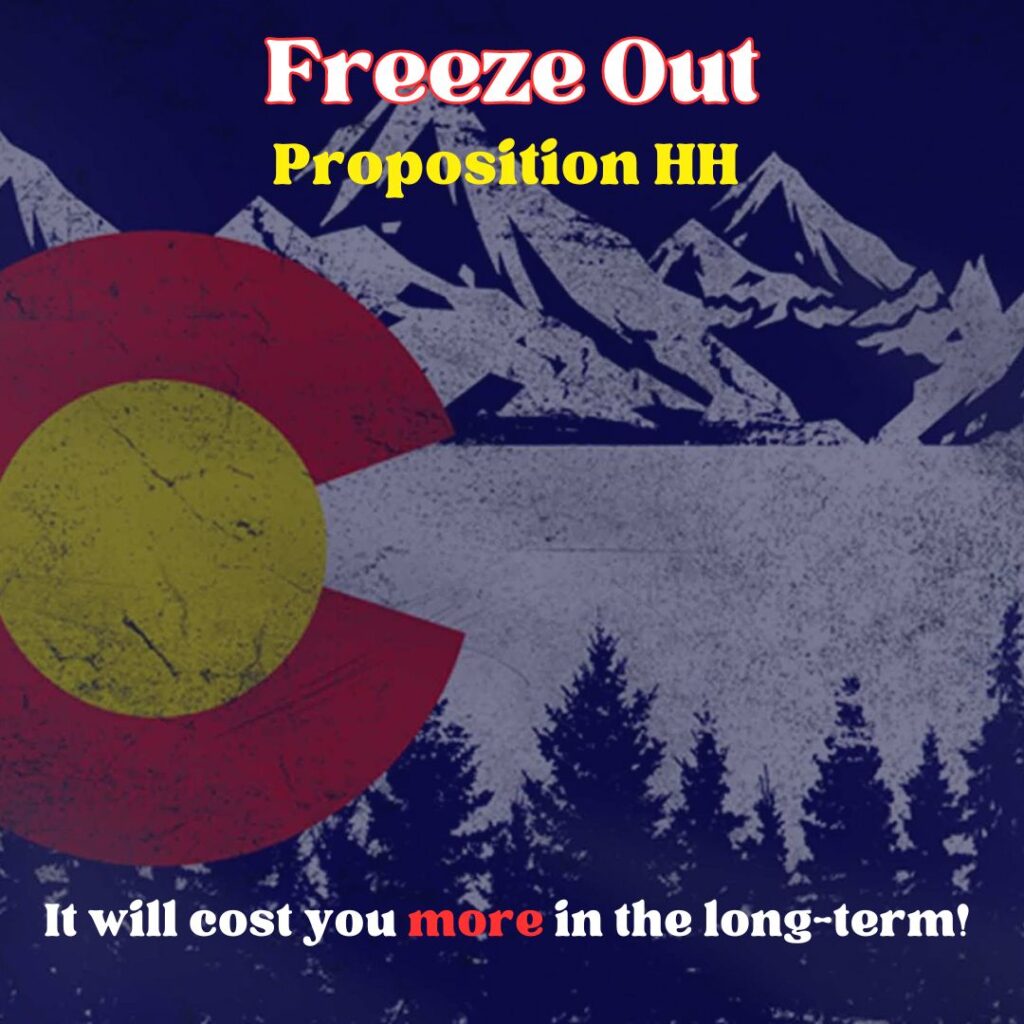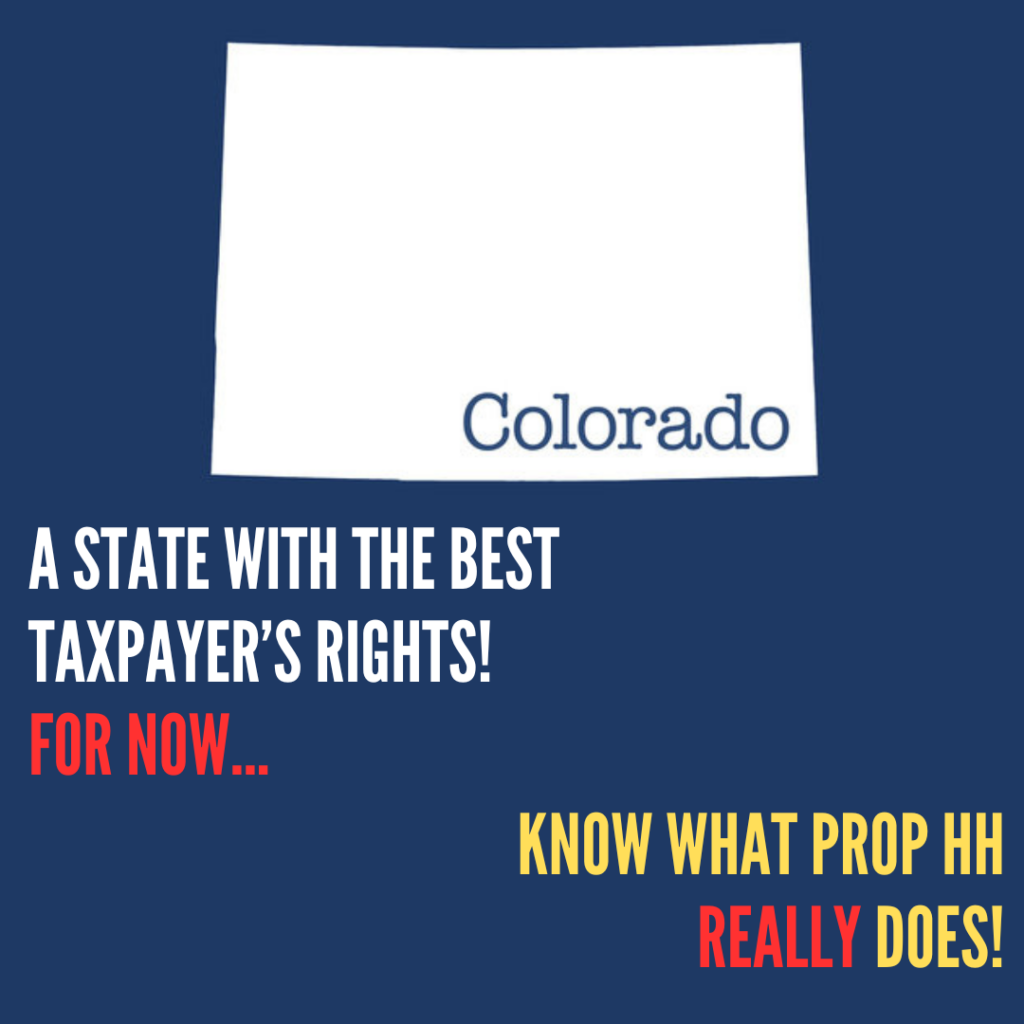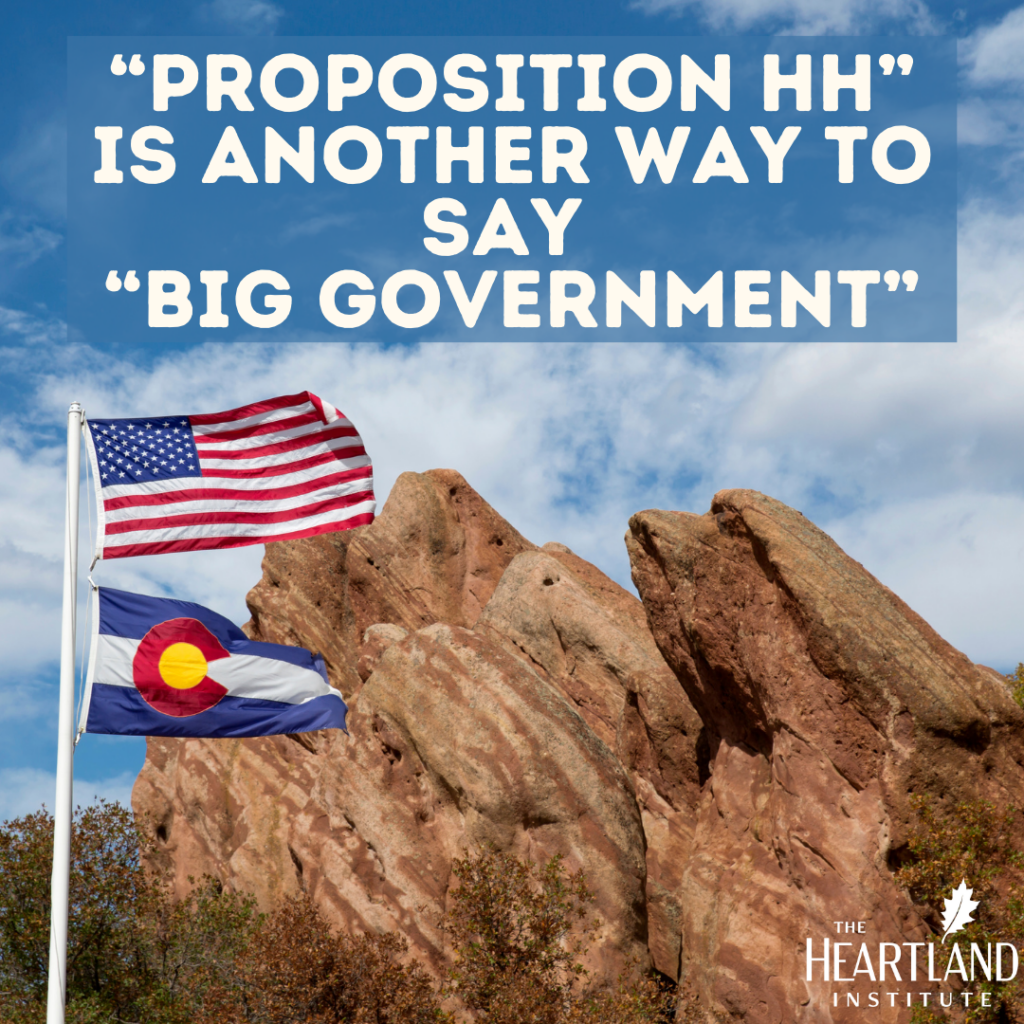
Proposition HH is posed as providing substantial property tax relief to Coloradans, although there is much to be learned in the fine print of the ballot referendum. Unfortunately, citizens of the Centennial State could see the loss of their landmark Taxpayers Bill of Rights (TABOR) benefits if not educated correctly.
What would Proposition HH actually do?
Proposition HH is positioned as a property tax relief plan but would do very little to create substantial property tax relief while allowing the government to weaken taxpayer protections through the Taxpayers Bill of Rights (TABOR).
Currently, Coloradans enjoy the ability to have a say anytime their state government wants to increase revenue collection and ramp up government spending. Proposition HH is set to expire after 10 years, but the fine print of the referendum allows the legislature to extend the policy indefinitely with only a majority vote, without say from the taxpayers.
Additionally, the increase in the state’s growth and spending would eventually reduce the amount of money available for annual refunds.
How would Proposition HH change property taxes?
If passed, Proposition HH would not lower Coloradans’ property taxes below what they currently pay. However, it would simply limit the increase in property taxes starting in the 2023 tax year for what’s owed in 2024 and continue the relief through 2032. This would be done by lowering the assessment rate for certain residential and non-residential properties.
This change in assessment would save the average Colorado homeowner about $4,600 through 2032. However, the average homeowner would also face a net tax increase of about $450 annually through 2032 at the cost of losing their TABOR refunds.
If the state of Colorado is taxing, collecting, and spending more money annually that will deplete the reserve available for the TABOR refunds.
What is in the second part of the referendum?
Proposition HH would eventually increase taxes by allowing the state of Colorado to increase spending annually. Specifically, Prop HH authorizes up to a 25 percent increase in the annual growth rate in the state spending limit. This monumental hike would eventually deplete the revenue for the TABOR refunds resulting in significant tax increases.
What would this extra revenue go to?
Proposition HH would distribute this “excess revenue” to school districts for all of the revenue lost due to the property reductions in Proposition HH. Then it would go to ambulance, fire, and health districts for their revenue reductions. Then all other local districts funded by property taxes would be completely reimbursed. If there is any funding remaining after the payments are made, it would be sent to the state education fund as a pseudo rainy day fund. Lastly, Prop HH would eventually set aside up to $20 million each year to go toward a state renter relief program.
What would be the long-term cost and economic implications of proposition HH?
When comparing the property tax increase to lost TABOR refunds, most taxpayers would pay more over the next 10 years if HH passes than if HH fails. According to a study by the Common Sense Institute, if Proposition HH were extended by the state legislature through 2040, it could produce a $21 billion net tax increase, as property taxes are reduced by $21.49 billion while state taxes increase by $42.38 billion.
Who would Proposition HH hurt the most?
Renters. Exactly, 33 percent of all Colorado households are renters and they would not see any of the property tax reduction and only lose their annual TABOR refunds while allowing citizens to give up any say in future tax increases and government spending. Specifically, it is estimated that joint filers would lose $5,119 in future TABOR refunds.
Isn’t TABOR good for homeowners?
For the average Colorado homeowner, the estimated property tax relief would be less annually than the average TABOR refund. The average homeowner would face a net tax increase of around $450 through 2032. While they would see $4,641 in property tax savings, they would have a $5,119 increase in state taxes at the cost of future TABOR refunds, according to the Common Sense Institute. The benefits of Proposition HH are limited while allowing citizens to give up their say in future tax increases and government spending.
Conclusion
Overall, any substantial benefits to the taxpayers in the form of property tax reductions would be overshadowed by long-term tax increases. Proposition HH is, in fact, a wolf in sheep’s clothing for the rights the Colorado taxpayers have exercised since the implementation of TABOR.
For the sake of Coloradoans, one can hope that the voters become well-informed on all of the economic and tax implications associated with Proposition HH.
Op-Eds
9-26-23: Proposition HH is wolf in sheep’s clothing for Colorado
Online Ads





Videos
Other Helpful Links and Resources
Rich States, Poor States: Colorado
TABOR Turns 30: Thirty Years of Colorado’s Taxpayer’s Bill of Rights
The Common Sense Institute: Proposition HH: The Taxpayer Dilemma
Nothing in this FAQ is intended to influence the passage of legislation, and it does not necessarily represent the views of The Heartland Institute. For further information on this subject, visit The Heartland Institute’s website and PolicyBot, Heartland’s free online research database.


